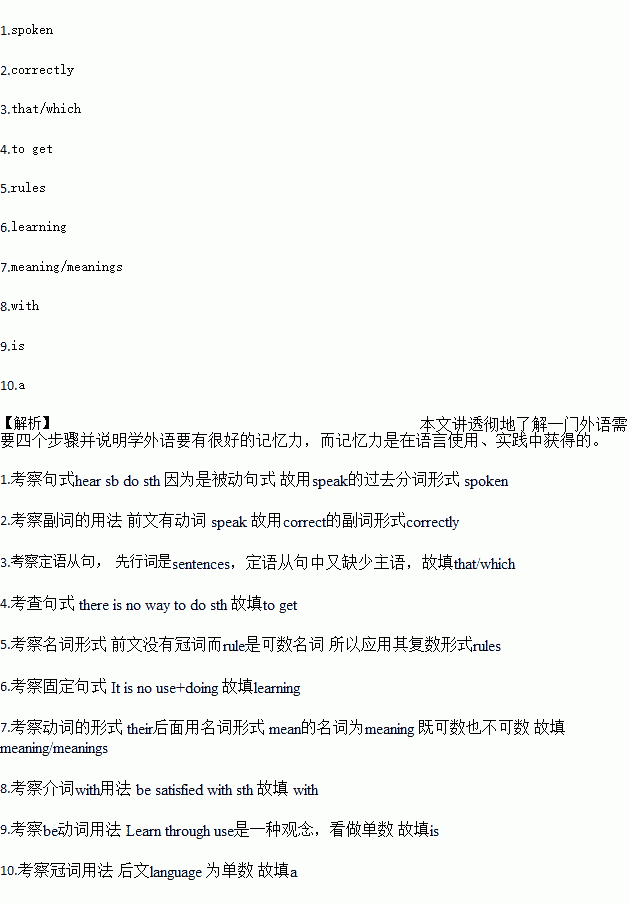题目内容
In order to know a foreign language thoroughly,four things are necessary.First,we must understand the language when we hear it1.(speak).Secondly,we must be able to speak it 2.(correct) with confidence and without hesitation.Thirdly,we must be able to read the language,and fourthly,we must be able to write it.We must be able to make sentences3.are grammatically correct.
There is no easy way4.(get) success in language learning.A good memory is of great help,but it is not enough only to memorize5.(rule) from a grammar book.It is no use6.(learn) by heart long lists of words and their7.(mean),studying the dictionary and so on.We must learn by using the language.If we are satisfied8.only a few rules we have memorized,we are not really learning the language."Learn through use"9.(be) a good piece of advice for those who are studying10.new language.Practice is important.We must practise speaking and writing the language whenever we can.
 金钥匙试卷系列答案
金钥匙试卷系列答案
